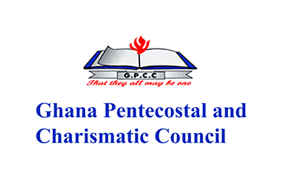Ninth Circuit revives church’s lawsuit against law requiring healthcare plans cover abortion

A federal appeals court has concluded that a church in Washington state has the right to sue over a state law requiring health insurers to cover abortions, partially overturning a lower court decision dismissing the case.
A three-judge panel of the U.S. Court of Appeals for the Ninth Circuit issued a unanimous decision last Thursday reviving the Cedar Park Assembly of God of Kirkland’s lawsuit against Gov. Jay Inslee and Washington Insurance Commissioner Myron Kreidler over a healthcare law known as Senate Bill 6219.
All three judges were appointed by former President George W. Bush.
The panel opinion concluded that Cedar Park “plausibly alleged that” the law forced the church’s health insurer to stop “offering a plan with abortion coverage restrictions.” The ruling argued that “Cedar Park could not procure comparable replacement coverage.”
“The state’s argument that Cedar Park did not suffer an injury because SB 6219 did not prevent Kaiser Permanente from continuing to offer a plan that restricted abortion coverage fails because Kaiser Permanente reasonably understood the plain language of SB 6219 as precluding such restrictions, and it acted accordingly when it removed the restrictions from Cedar Park’s health plan,” the panel ruled.
“Although the state argues that Cedar Park did not suffer an injury caused by SB 6219 because other health insurers offered plans that would meet Cedar Park’s requirements, this argument also fails given that Kaiser Permanente dropped Cedar Park’s abortion coverage restrictions due to SB 6219, and there is no evidence in the record clearly demonstrating that Cedar Park could obtain acceptable coverage at the time it filed its complaint.”
The panel did not fully overturn the lower court decision, agreeing with the district court by rejecting the church’s “equal protection claim for lack of standing.” The judges ruled that “the complaint does not plausibly allege that Cedar Park suffered a denial of equal treatment due to SB 6219’s interaction with Washington’s conscience objection statute.”
“… such differential treatment does not constitute discrimination because the providers are not similarly situated to religious organizations,” continued the judges.
“This is because the providers are in the business of providing health services, while religious organizations merely purchase health coverage.”
The Alliance Defending Freedom, a legal nonprofit helping to represent the church, celebrated the ruling. The group noted that the litigation will continue at the district court level.
“No church should be forced to cover abortions, and certainly not a church like Cedar Park that dedicates its ministry to protecting and celebrating life,” said ADF Legal Counsel Elissa Graves in a statement.
“We are pleased the 9th Circuit rightly recognized the harm that Washington state has inflicted on Cedar Park Church in subjecting it to this unprecedented mandate.”
In March 2018, Inslee signed SB 6219 into law requiring healthcare plans covering maternity care to cover abortions.
Also called the Reproductive Parity Act, the law stated that “if a health plan issued or renewed on or after Jan. 1, 2019, provides coverage for maternity care or services, the health plan must also provide a covered person with substantially equivalent coverage to permit the abortion of a pregnancy.”
“Neither a woman’s income level nor her type of insurance should prevent her from having access to a full range of reproductive health care, including contraception and abortion services,” the law reads.
“Restrictions on abortion coverage interfere with a woman’s personal, private pregnancy decision making, with his or her health and well-being, and with his or her constitutionally protected right to safe and legal medical abortion care.”
The church filed its complaint in federal court in March 2019. This May, Judge Benjamin Settle, a George W. Bush appointee, dismissed the church’s lawsuit. He ruled that “Cedar Park has chosen to maintain a business relationship with a company that fails to provide a service meeting Cedar Park’s preference despite the potential availability of suitable alternatives.”





